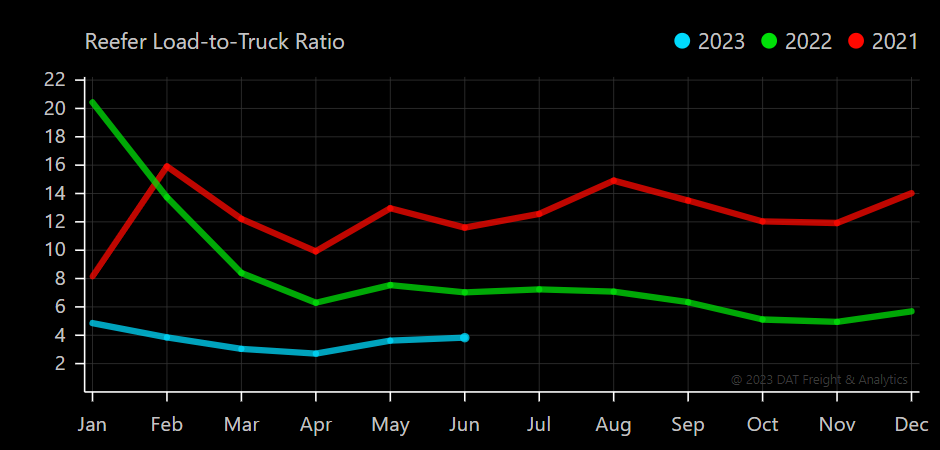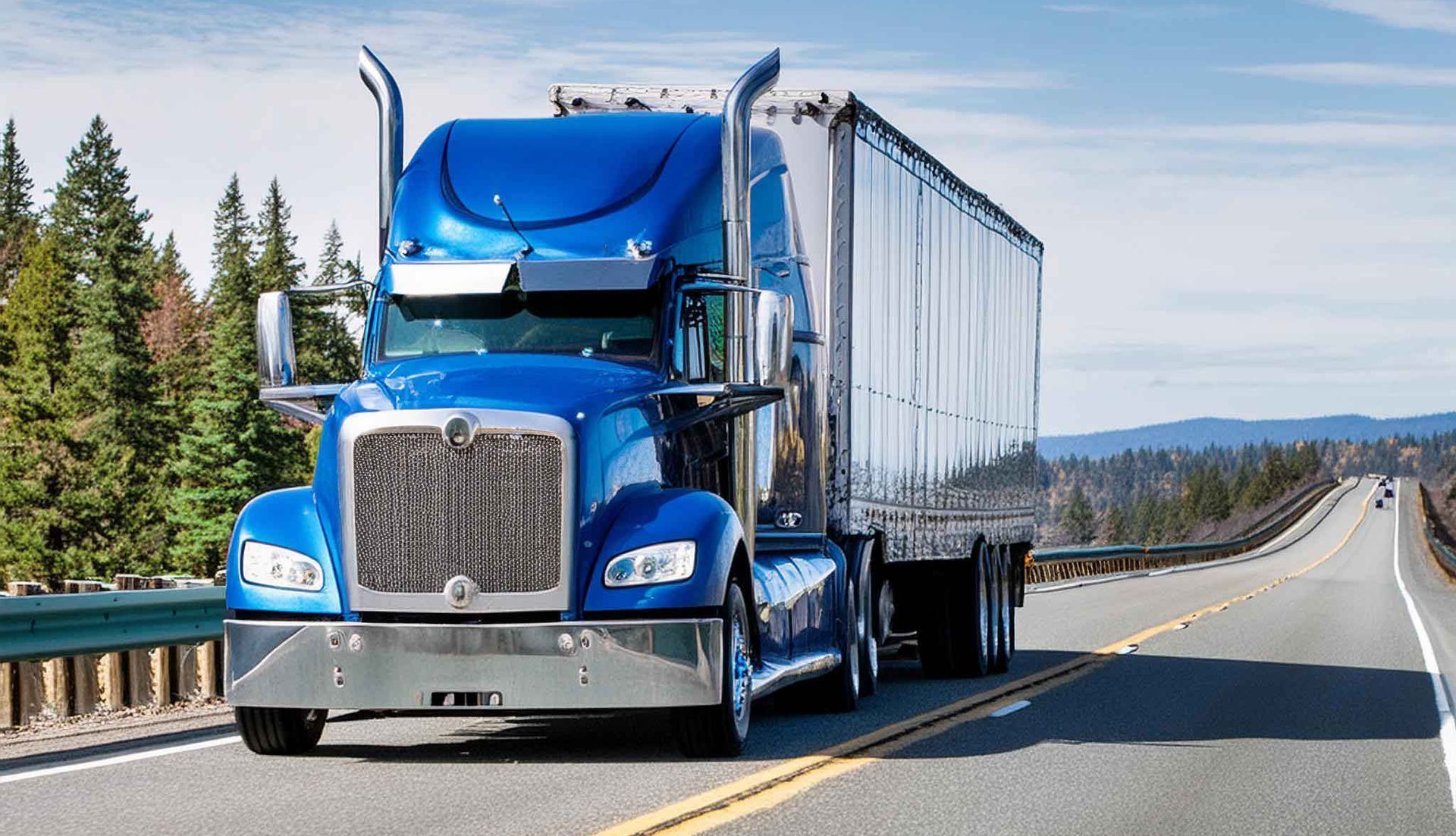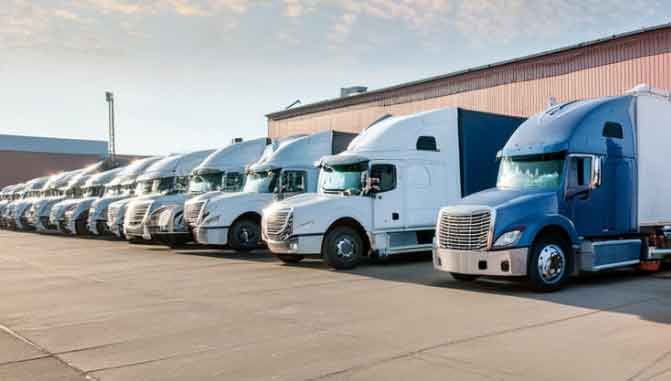Temperature-Controlled Shipments
Temperature Controlled Freight
Temperature-controlled shipments play a crucial role in preserving the quality and integrity of products such as pharmaceuticals, perishable foods, chemicals, and more. This article aims to shed light on what temperature-controlled shipments are and how the modes of transport—Less Than Truckload (LTL), Partial Truckload (PTL), Full Truckload (FTL)—differ in managing these shipments. Additionally, we will explore the unique challenges of protecting shipments from freeze in the LTL environment and how it varies from using a refrigerated truckload (reefer TL) unit.
What is a Temperature Controlled Shipment?
Temperature-controlled shipments refer to the transportation of goods that require specific temperature conditions throughout the entire journey. These shipments are typically regulated within a specific temperature range, either below freezing (sub-zero) or above freezing (positive temperature range), depending on the nature of the cargo.

Temperature-Controlled Shipment Modes:
- Less Than Truckload (LTL): In LTL shipments, multiple shipments from various customers are consolidated onto a single truck. This mode of transport is cost-effective for smaller shipments as it optimizes truck space. Temperature control in LTL shipments is achieved through the use of insulated containers or thermal blankets. However, protecting shipments from freezing temperatures in the LTL environment can be challenging due to the nature of shared space and the potential for temperature fluctuations. The volatility of temperature in the LTL network is typically to prevent freezing, not to keep the product itself in a state of freezing.
- Partial Truckload (PTL): PTL combines elements of both LTL and FTL shipping. It involves shipping larger partial loads on reefer truckload equipment that occupy a significant portion of the truck's space but do not fully utilize the entire trailer. PTL shipments allow for more control over temperature conditions, as the goods are not exposed to as many external factors as in an LTL scenario however building a partial load where the product can be mixed with other freight is rather challenging due to potential allergens, odors, and the temperature range needing to be consistent across all freight, all the while the linear feet of the trailer is juggled.
- Full Truckload (FTL): FTL shipments involve utilizing an entire truckload trailer for a single shipment, usually for larger quantities of temp control cargo. FTL shipments provide the most control over temperature using reefer TL equipment, as the entire trailer is dedicated to a single customer's goods. This allows for precise temperature monitoring and ensures a consistent environment throughout the journey. This is the most popular method TLI uses to route temperature controlled freight. Reefer TL units, also known as refrigerated truckload units, offer a higher level of temperature control. These specialized trailers are equipped with advanced refrigeration systems that maintain consistent temperature conditions throughout the shipment. The temperature settings can be customized according to the cargo requirements, ensuring optimal preservation. Additionally, reefer TL units often have built-in monitoring systems that allow for real-time temperature tracking and immediate response to any deviations.
Reefer Truckload Trailers: The Temperature-Controlled Solution
Reefer truckload trailers, also known as refrigerated trailers, are purpose-built for transporting goods that require precise temperature control throughout their journey. These trailers are designed to maintain a consistent and controlled environment to ensure the integrity and quality of perishable or temperature-sensitive cargo.
Here are the key characteristics that distinguish reefer truckload trailers from normal dry van trailers:
- Temperature Control System: The defining feature of reefer truckload trailers is their advanced temperature control system. These trailers are equipped with refrigeration units and sophisticated HVAC (Heating, Ventilation, and Air Conditioning) systems, allowing precise temperature regulation within a specified range. This ensures that the cargo remains within the required temperature parameters, whether it is frozen, chilled, or kept at ambient conditions.
- Insulation and Sealing: Reefer truckload trailers are designed with robust insulation materials and efficient sealing mechanisms to minimize temperature fluctuations and protect the cargo from external temperature influences. The insulation helps maintain a stable internal environment while preventing heat transfer from the outside.
- Temperature Monitoring and Control: Reefer trailers incorporate temperature monitoring and control systems that provide real-time data on the cargo's temperature conditions. These systems often feature alarms and alerts to notify the driver or logistics personnel if there are any deviations from the set temperature range. This enables quick response and corrective actions, ensuring the cargo's integrity is maintained.
- Ventilation and Airflow: To maintain optimal air circulation and prevent humidity build-up, reefer truckload trailers have ventilation systems that facilitate proper airflow throughout the trailer. This feature is especially critical when transporting goods that require specific humidity levels, such as certain fruits, vegetables, or pharmaceuticals.
Dry Van Trailers: Versatility in General Cargo Transportation
Normal dry van trailers, also known as non-refrigerated or general-purpose trailers, are widely used for transporting a broad range of goods that do not require temperature control. These trailers are versatile and suitable for transporting dry and non-perishable cargo.
Here are the key characteristics of normal dry van trailers:
- No Temperature Control System: Unlike reefer truckload trailers, normal dry van trailers lack the specialized temperature control systems required for transporting perishable or temperature-sensitive goods. They are designed to provide protection against external elements but do not actively regulate the internal temperature.
- Storage Capacity: Normal dry van trailers often have higher storage capacity compared to reefer trailers, as they do not require space for refrigeration units or HVAC systems. This makes them more suitable for transporting bulky or non-perishable goods.
- Flexibility: Dry van trailers offer greater flexibility as they can be used for a wide variety of cargo types, including dry goods, furniture, electronics, textiles, and more. This versatility makes them a popular choice for general freight transportation.
Understanding the distinctions between reefer truckload trailers and normal dry van trailers is crucial when planning the transportation of temperature-sensitive goods. While reefer trailers offer precise temperature control and insulation, normal dry van trailers provide a more flexible solution for general cargo transportation. By choosing the appropriate trailer based on the specific requirements of the cargo, shippers can ensure the safe and efficient transportation of their goods.
TLI Insights
Get the latest logistics insights and tips from TLI's award-winning team. Stay ahead in transportation planning.
Questions? Email us at marketing@shiptli.com



